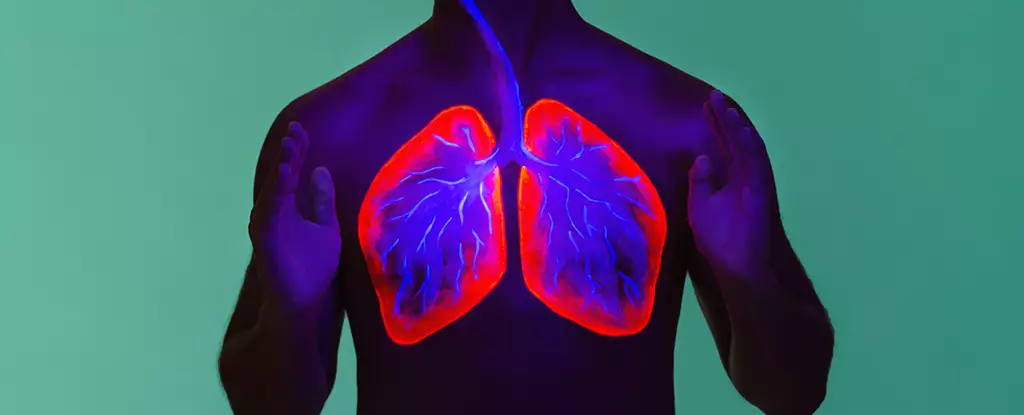When we ponder the causes of lung cancer, our minds often leap to obvious culprits like smoking or air pollution. However, recent findings from researchers at the University of Florida and the University of Kentucky challenge this conventional understanding. Their groundbreaking study suggests that diet—specifically the intake of carbohydrates—might play a significant role in the onset of lung adenocarcinoma, the most prevalent type of lung cancer, accounting for approximately 40% of cases worldwide.
The researchers identified heightened levels of glycogen, a polysaccharide that serves as a glucose storage molecule, in the tissues of patients with lung adenocarcinoma. This discovery is not merely academic. With mice studies indicating that increased glycogen levels correlate with accelerated tumor growth, the implications for diet and cancer prevention are profound. In fact, diminishing glycogen levels in these studies visibly inhibited cancerous growth.
Spatial Metabolomics: A New Frontier in Cancer Research
The methodology employed in this study illustrates an exciting intersection between innovative technology and healthcare. Researchers utilized spatial metabolomics, a sophisticated analytical technique that allows them to map small molecules in relation to their specific locations within tissue samples. By applying this method, they uncovered intricate molecular patterns that had previously eluded scientists. According to molecular biologist Ramon Sun, this platform provides a fresh, detailed perspective on diseases, unlocking potential insights into both their causes and treatment strategies.
Understanding how glycogen behaves in the context of lung cancer is critical. Historically, glycogen has not received significant attention in cancer research, often overshadowed by more prominent risks like carcinogens from tobacco smoke. Yet these new insights suggest that glycogen should indeed be on our radar—not just as an energy reserve for muscles but as a potential growth factor for cancer cells, effectively acting like a sweet fuel that emboldens tumor proliferation.
The Diet Connection: A Call for Action
The correlative findings of this study raise pressing questions about our dietary habits. Glycogen predominantly derives from carbohydrates, raising the issue of whether a high-fat, high-carbohydrate diet may fuel lung cancer progression. In observed experiments, mice consuming such diets exhibited greater tumor growth compared to those on alternative diets, highlighting a worrying connection between nutritional choices and cancer development.
This evidence uncovers a layer of complexity surrounding lung cancer, compelling a reevaluation of how we approach cancer prevention. While tobacco cessation campaigns have proven effective in reducing smoking rates and subsequent lung cancer cases, it becomes increasingly necessary to advocate for awareness surrounding dietary impacts on health. Sun’s assertion that dietary interventions and public awareness campaigns should mirror the successes of anti-smoking initiatives is a poignant one. Just as society has sought to diminish tobacco use through education and policy, it is time we prioritize the conversation about nutrition and its health ramifications.
More Than Just a Lifestyle Choice
In addition to boosting awareness, these findings should spark policy-driven efforts that encourage healthier eating habits. With rising incidences of cancers linked to diets high in red meat and alcohol, it appears that lung cancer could soon join the ranks of diet-related diseases. This potential paradigm shift is not trivial; it emphasizes that lifestyle choices are not just personal freedoms but critical components in the public health dialogue.
However, it’s crucial to note that elevated glycogen levels were specifically observed in cases of lung adenocarcinoma, not affecting other lung cancer types like squamous cell carcinoma. This discrepancy necessitates rigorous further investigation, making it clear that while the findings are significant, the road to understanding the broader implications will require more research.
As we stand at this intriguing crossroads of diet and health, it becomes imperative that both individuals and communities reassess their relationship with food. In the grand tapestry of health, weaving in the insights from this study could fundamentally alter how we perceive, prevent, and ultimately combat lung cancer. Diet, long overlooked in the context of respiratory diseases, is now calling for attention in a way that could redefine preventive health measures moving forward.

